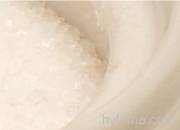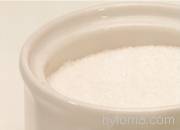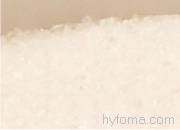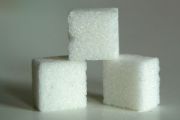This article is not yet available in the language you selected
Sugar syrup (sweeteners) manufacture
The starch slurry is also the starting raw material for the manufacture of sugar syrups; which are produced by the action of acids, enzymes or a combination of both. The process is made in different liquefaction, saccharification and isomerisation reactors. In a typical process, dilute hydrochloric acid and a starch slurry (the final product of starch manufacture before drying) are mixed. The temperature is then raised to around140 °C. Conversion of the starch only takes a few minutes. The mass is neutralised and purified to eliminate impurities (protein, fat, minerals) insoluble matter removed by filtration and the liquor is concentrated. The liquor is usually filtered and treated with active charcoal or ion exchange resins to remove colour, ash and other minor impurities, e.g minerals. The liquid sweetener resulting can be sold as such or directly dried, or crystallised to produce dry sweeteners.
 back to top
back to top


 companias
companias



